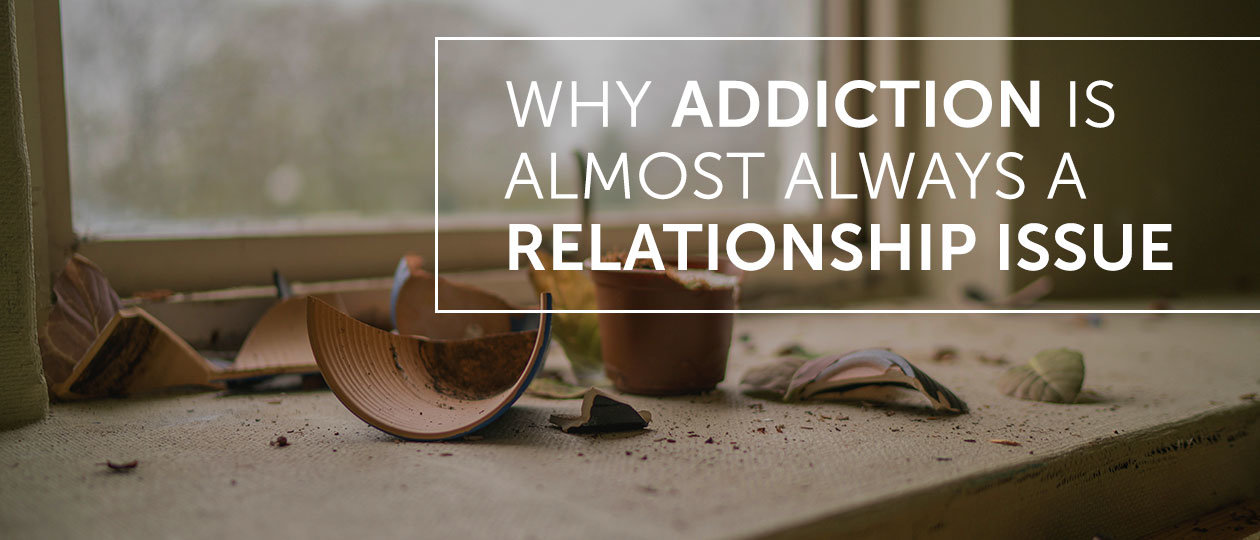Why Addiction is Almost Always a Relationship Issue
Humans are born to bond. Connection, just like food and water, is needed in order to thrive.
Today’s society, however, makes it way too easy to become isolated. The pervasive use of social media has eroded human connectedness. Online connections give us the instant gratification of connecting, but it is very superficial.
My proprietary Healing Codes help people fix the broken heart issues preventing them from making genuine connections. One way we negatively cope with our brokenness is through addictive behaviors. Throughout my years of practice I have worked closely with many people struggling with addiction and its many forms -- drug abuse, alcohol abuse, gambling addictions, food addictions, video game addictions, etc. The connection between our weakened relationships and addictive behavior is real. But before we delve into this further, let’s take a trip (no pun intended) back in time.
Professor of Psychology Bruce Alexander challenged the rat-in-the-cage drug addiction experiments prevalent during Partnership for a Drug-Free America advertisements in the 1980s. During the experiment, a rat is placed in a cage with two water bottles. One is water and the other is water laced with drugs, usually cocaine or heroin. Almost every time the experiment is run, the rat becomes obsessed with the drugged water and keep coming back for more and more, until it kills itself.
Professor Alexander wondered what would happen if the rat’s environment was changed. He built Rat Park, an inviting cage where rats had toys to play with, tunnels for exercise, quality rat food and plenty of rat friends. In Rat Park, all the rats obviously tried both water bottles, because they didn’t know what was in them. But what happened next was startling. The rats with good lives didn’t like the drugged water. They mostly shunned it, consuming less than a quarter of the drugs the isolated rats used. None of them died.
While this is certainly not a comprehensive look at addiction, because of course genetics, type of substances, etc., play a role, it makes an interesting point about the innate need to connect and how human connection and addiction are intertwined.
As I mentioned in this blog, not only are all issues relationship issues, but almost all relationship issues center around unforgiveness.
In my work, I have met many people with serious health issues, and I’ve never seen one that didn’t have an accompanying forgiveness issue. In fact, I first met a good friend of mine, an MD and cancer specialist named Dr. Ben Johnson, because his teachings are based on the fact that he’d never seen a cancer case without a related unforgiveness issue. Neither of us had heard anyone else teach this, because it goes against the basic thinking of our time. The real key to living in health, love and joy is forgiveness.
No matter what type of addiction you struggle with, the Healing Codes will help you uncover the relationship issues that are feeding your unhappiness and stress. Here are a few takeaways I’d like to leave you with:
- The abuse of a substance is almost always a logical attempt to deal with pain that is overwhelming, such as pain from a dysfunctional relationship.
- That type of pain typically comes from a false belief that forms from relational hurt (I’m inadequate, unlovable, etc.).
- Two dangerous things happen in the formation of an addiction: 1.) These false beliefs take root, becoming the filter through which you see the world, amplifying the pain. 2.) The substances spike your dopamine, literally changing your brain chemistry and creating a true addiction over time.
I can’t wait to hear your stories of releasing unforgiveness and being released from the bonds of addictive behavior.




Add a Comment